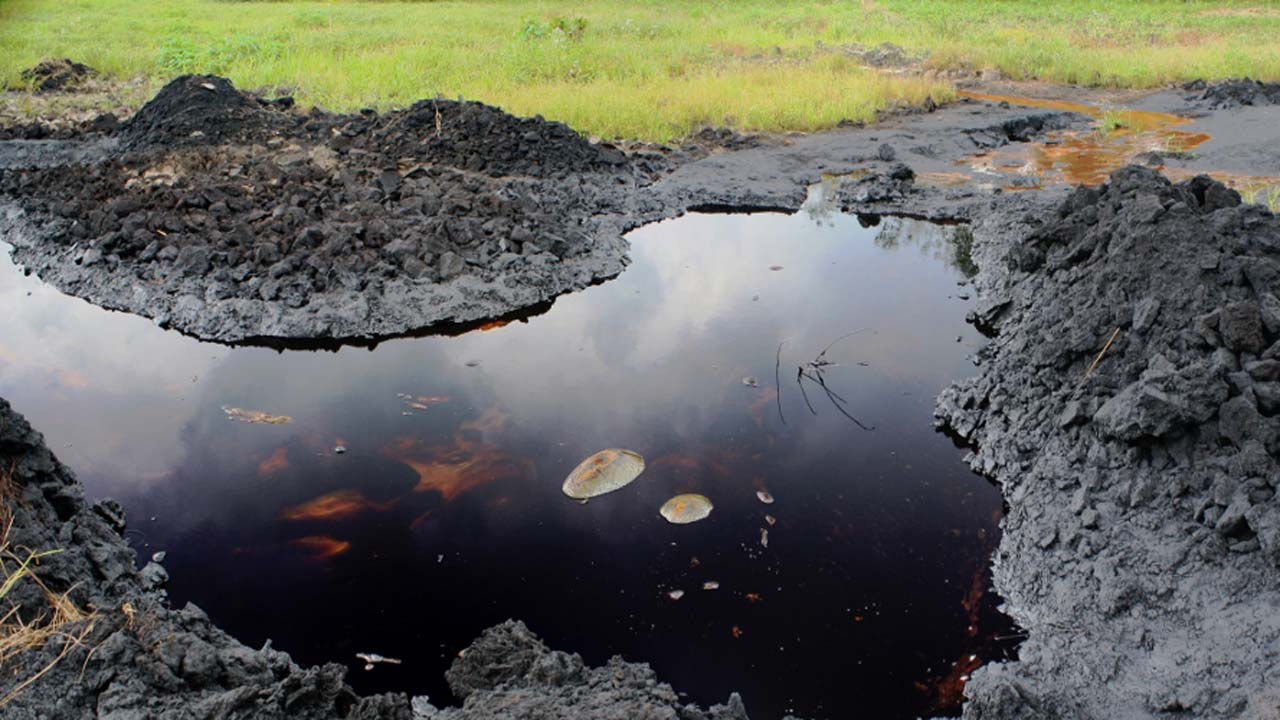Global attention was beamed on the devastating oil pollution in Bayelsa State on Tuesday as the Bayelsa Oil and Environmental Commission (BSOEC) presented its report to the House of Lords in London.
The 211-page report entitled: “An Environmental Genocide: Counting the Human Cost of Oil in Bayelsa, Nigeria,” is a detailed documentation of the over 60 years of oil exploration and pollution in the state where oil was first discovered in commercial quantity in Nigeria by Shell in 1956.
The BSOEC which was established in March 2019 by the immediate past Senator Seriake Dickson administration declared that Bayelsa State would require $12billion to clean up the environment.
Baroness Amos, a member of the Commission in her remarks, said the pollution of Bayelsa by oil multinationals was scandalous and shameful, calling on the international community to take action against polluters of the environment.
“The research and the evidence contained in the report tell the stories that are so important. The community impact of the pollution comes through so clearly and it is devastating.
“This has been on for so long. It is an absolute scandal and we should all be ashamed that we have got to this point. Those responsible, including our international oil companies, should be ashamed of the roles they have played in their refusal to take responsibility.
“Talking about this being the fault of the local communities, who can see the result of this long-standing neglect and not be moved? And yet, that is what exactly happened. There has been no accountability on the part of the oil multinationals.
“I understand that there are a lot of people who might not even have heard about Bayelsa. But I hope what people will be able to connect to and see as a result of this report is the scale of the human impact.”
While presenting the report, chair of the commission’s Expert Working Group, Dr Kathryn Nwajiaku-Dahou, said the document was the product of four years of tireless work put in by researchers, scientists and professionals in different fields, who went round Bayelsa communities gathering samples.
“This helped us to bring to light what the commission describes as environment genocide that plagues Bayelsa today.
“The Commission’s findings shine light on the pollution catastrophe engulfing the state and its underlying causes. Chief among them are the systemic failings of international oil company operators with the complicity of Nigeria’s political class and a dysfunctional Nigerian regulatory state.
Governor Diri, in his response, commended the commissioners, researchers, non-governmental organisations and the Commission’s secretariat that painstakingly put the report together as well as the people of Bayelsa for “coming forward to make their voices heard.”
He also lauded his predecessor, Senator Seriake Dickson, for his foresight and vision in empaneling the commission.
Governor Diri pledged that his administration would act on the recommendations and seek partners to ensure that the report was implemented.
“I, on behalf of the government and people of Bayelsa State, pledge our commitment to act decisively and speedily on the recommendations of this report. In doing this, we remain open to robust and genuine engagements with all stakeholders.”
In a goodwill message presented virtually by Senator Seriake Dickson, the former Bayelsa governor said the report was very important and that he established the commission to be able to document the decades-long degradation of the Bayelsa environment and its effect on people of the state.

